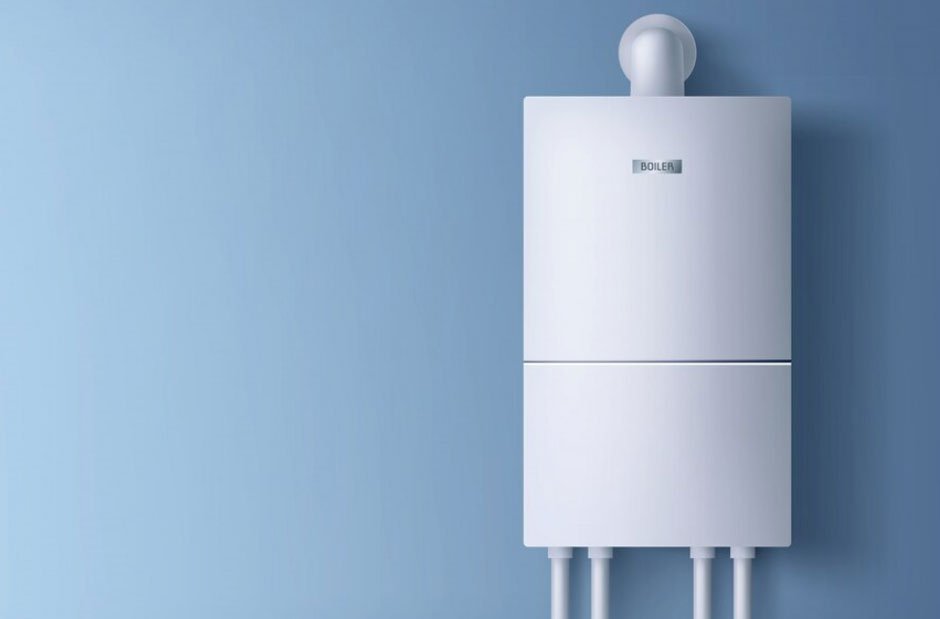8 Reasons Why Your Water Heater Isn’t Heating
Your water heater operates persistently within unseen areas to deliver warm showers and clean dishes, apart from fresh laundry, until it somehow communicates problems one day. The appliance works hard, as all other appliances do, yet requires regular upkeep to continue operating optimally.
Signs indicating professional maintenance services are necessary are correct when you want to prevent an uncomfortable cold shower scenario.
Primary causes of water heater failure are electrical problems with breakers or elements, gas supply problems with pilot lights, and internal tank problems caused by sediment or dip tube failure. A simple solution to this issue is resetting the switch or relighting the pilot flame.
The problem requires component replacement either singly or demands an exchange of the whole unit. This guide examines the leading causes behind water heater non-functionality while offering clear instructions on efficiently recovering hot water service.
Knowledge of common water heater problems will assist both amateurs who tackle repairs themselves and people who prefer professional assistance in diagnosing and troubleshooting tasks and repair expenses.
Let’s dive in!
1.Power or Gas Supply Issues
One of the most common causes of water heaters not heating is power or gas supply issues.
For Electric Water Heaters:
- The unit can become instantly without power when either a circuit breaker trips or a fuse blows.
- Heat function might not work because of faulty wiring and a defective heating element.
ForRGas Water Heaters:
- The pilot light may be out, or the gas valve could be closed.
- A faulty thermocouple or gas supply issue can disrupt heating.
Solution:
- Check the circuit breaker for electric heaters and reset if needed.
- Relight the pilot light and make sure the gas valve is open for gas heaters.
When facing such issues, it’s essential to call for a local repair service since it’s easily accessible. If you’re in Ocala, for instance, you can hire top water heater repair service Ocala for routine maintenance to ensure you always have hot water.
2.Sediment Buildup in the Tank
The tank bottom collects calcium and magnesium minerals, which creates insulation around the heating element to reduce its efficiency.
Signs of Sediment Buildup:
- Loud popping or rumbling noises
- Longer heating times
- Inconsistent water temperature
Solution:
- Flush the tank to remove sediment.
- Schedule annual maintenance to prevent buildup.
3.Faulty Thermostat
The thermostat requires replacement when your water heater fails to heat properly or generates excessive or deficient temperature.
Solution:
- Set the thermostat at its suggested temperature level, which normally stands at 120°F.
- Replace the thermostat since it shows no response.
4.Broken Heating Element (Electric Heaters Only)
Electric water heaters have upper and lower heating elements. If one fails, you may get lukewarm or no hot water.
Solution:
- Test the heating elements with a multimeter.
- Replace any faulty elements.
5.Leaking Tank
A leaking water heater often means internal c water heater repair service Ocalaorrosion or a cracked tank.
Solution:
- The replacement of a leaking tank becomes essential.
- Call a professional plumber to assess the damage.
6.High Demand Overloading the System
The heater system will become overloaded when you operate multiple hot water appliances at once.
Solution:
- Upgrade to a larger tank or switch to a tankless water heater for endless hot water.
7.Dip Tube Failure
The dip tube models cold water toward the bottom of the storage tank.
Solution:
- Replace the dip tube if it’s cracked or disintegrated.
8.Malfunctioning Pressure Relief Valve
A malfunctioning pressure relief valve is a safety feature that releases excess pressure. If it fails, your heater may shut off.
Solution:
- Test the valve by lifting the lever (water should discharge).
- If it doesn’t work, replace the valve.
Tankless Water Heater-Specific Issues
Tankless systems provide on-demand hot water but can also experience problems:
1.Mineral Buildup (Hard Water Damage)
- Scale accumulation reduces efficiency
Solution: Descale the unit annually.
2.Overloaded System
- If demand exceeds capacity, the heater can’t keep up.
Solution: Install a larger unit or limit simultaneous use.
3.Venting or Gas Supply Issues
- Blocked vents or insufficient gas flow can prevent heating.
Solution: Check venting and gas pressure.
Should You Repair or Replace Your Water Heater?
Any repair work on a water heater exceeds financial efficiency marks after the system reaches ten to fifteen years of operation.
Signs You Need a Replacement:
- Frequent repairs
- Rusty or discolored water
- Leaks around the base
- Inconsistent temperatures
Signs That Indicate Your Water Heater Needs Maintenance
Timely detection of water heater problems before total breakdown will help avoid expensive salvage or overhaul expenses. Professional servicing of your system becomes necessary when you notice the following indicators:
1.Fluctuating Water Temperatures
When your shower transitions abruptly from hot to cold temperatures, you likely need to check your heating elements and thermostat for failure. Building materials contained in sediment create inconsistent water temperatures as they build up.
2.Strange Noises (Rumbling, Popping, Banging)
Sediment that hardened in the tank bottom produces loud noises, indicating tank lining damage and overheating. Annual flushing prevents this damage.
3.Discoloured or Rusty Water
Brown water inside the water storage tank indicates corrosion from within. A water heater with hot water discoloration must have an exhausted anode rod that requires replacement.
4.Leaks or Moisture Around the Unit
Small drips can indicate tank cracks, loose valves, or failing seals. Water damage and flooding occur when you disregard leaking from your tank.
5.Longer Wait Times for Hot Water
Your water heating process becomes unbearably slow because either your heating elements have failing components (electric) or sediment accumulation (tank models), which reduces efficiency.
6.Higher Energy Bills
When sediment builds up, or broken components or aging system parts exist, your heater exhibits increased work during operation.
Don’t Ignore the Signs!
Regular water heater maintenance helps it survive two times longer and avoids sudden breakdowns.
When to Call for a Professional Service
While some water heater-related issues can be fixed with DIY solutions, others require expert attention. Call a plumber if:
- You suspect a gas leak
- Water heater is leaking from the tank itself (suggesting internal corrosion)
- Electrical components are damaged, or you’re unsure about handling wiring.
Conclusion
The understanding of typical water heater breakdowns, including electric power outages and tank sediment accumulation, along with thermostat malfunctions and leakage problems, allows effective troubleshooting.
DIY methods can resolve minor issues, yet experts need to handle any repair work involving tankless systems and gas heaters. Many issues can be avoided through regular tank flushing along with component inspections in your maintenance program.
Your investment in a new, modern water heater equipped with advanced energy efficiency features may provide the most beneficial solution for dealing with existing unit failure problems.
Professional technicians remain the only trustworthy experts who can conduct fast, affordable repairs, maintenance, and replacements for water heaters to restore hot water service quickly. Make an appointment right away without any delay.







